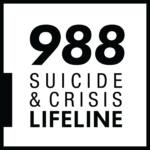Sleep Problems
Sleep problems may take many forms such as insomnia, sleep apnea, restless legs syndrome, narcolepsy, nightmares, night terrors, and more. According to the American Sleep Association, 30 percent of people have insomnia and 50 to 70 million people in the U.S. have a diagnosable sleep disorder.
Sleep is a vital part of human health, allowing the body to rest, repair, and recharge. However, many people suffer from sleep problems or disorders, which can significantly impact their quality of life. If you are experiencing persistent sleep problems, it is important to see a doctor to rule out any underlying medical conditions and discuss treatment options.
Insomnia is the most common sleep disorder, characterized by difficulty falling asleep or staying asleep. People with insomnia may experience daytime fatigue, mood swings, and difficulty concentrating. Insomnia can be caused by a variety of factors, including stress, anxiety, depression, medical conditions, and certain medications.
Sleep apnea is another common sleep disorder, characterized by pauses in breathing during sleep. These pauses can last for several seconds or even minutes, and they can occur multiple times per night. Sleep apnea can lead to daytime sleepiness, headaches, and an increased risk of heart disease and stroke. Sleep apnea is caused by a blockage in the airway, which can be due to a variety of factors, including obesity, enlarged tonsils, and a deviated septum.
Restless legs syndrome is a sleep movement disorder that causes an irresistible urge to move the legs, especially at night. This can make it difficult to fall asleep or stay asleep. Restless legs syndrome can also cause daytime fatigue and difficulty concentrating. The exact cause of restless legs syndrome is unknown, but it is thought to be related to a deficiency in dopamine, a neurotransmitter that plays a role in regulating movement.
Narcolepsy is a rare sleep disorder that causes excessive daytime sleepiness and cataplexy, a sudden loss of muscle control. People with narcolepsy may also experience hallucinations, sleep paralysis, and cataplexy. The cause of narcolepsy is unknown, but it is thought to be an autoimmune disorder.
Circadian rhythm disorders are sleep disorders that disrupt the body’s natural sleep-wake cycle. This can cause people to feel sleepy during the day and awake at night. Circadian rhythm disorders can be caused by a variety of factors, including jet lag, shift work, and certain medical conditions.
Nightmares and night terrors are both types of sleep disorders that can cause significant distress. Nightmares are vivid, disturbing dreams that occur during rapid eye movement (REM) sleep. People who experience nightmares may wake up feeling frightened or anxious. Night terrors, on the other hand, occur during non-rapid eye movement (NREM) sleep, typically in the first few hours of the night. People who experience night terrors may cry out, scream, or move around suddenly, but they will not remember the experience the next morning.
There are a variety of treatments available for sleep problems and disorders. The specific treatment will depend on the type of sleep disorder and its severity. In most common situations, improvement can be seen in a few sessions. Evidence-based psychotherapy includes behavioral and cognitive-behavioral therapy for sleep. This can be in the form of parent-training for children with sleep problems and sleep refusal and individual or family therapy for adults from the convenience and comfort of your own home.

